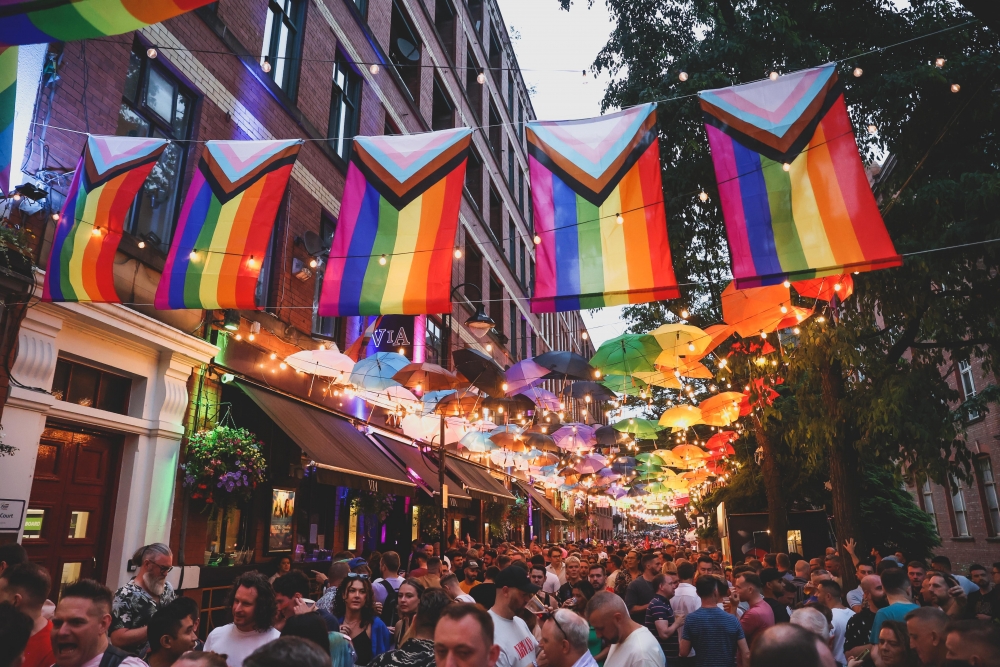
At first, it may appear that the two statements the EHRC released that day, one regarding reforming the Gender Recognition Act (GRA) in Scotland, and the other in response to legislative plans to ban ‘conversion therapy’ in England and Wales, work to support the LGBTQ+ community. Indeed, several of their recommendations are really positive, including reducing the fees and wait times for obtaining a Gender Recognition Certificate (GRC), and implementing procedures for ensuring that the ‘conversion therapy’ ban works effectively. But in addition to these positive recommendations, the EHRC provides several confusing stumbling blocks, issues that get in the way of progress, unsubstantiated concerns that work to slow down an already painfully slow process. And at the root of the EHRC’s statements is a total disrespect of LGBTQ+ people’s voices and experiences, including an especially concerning level of transphobia. It is no wonder, then, that so many LGBTQ+ groups and organisations have spoken out against the statements.
The letter by EHRC’s Chairwoman, Baroness Kishwer Falkner, to Shona Robison, the Cabinet Secretary for Social Justice, Housing and Local Government, positions itself within the context of a so-called ‘polarised debate’ on the issue of the GRA. This wording suggests that trans exclusionary ideas are common and popular ideas, and should be given equal weight as trans inclusive ideas. However, research shows that the majority of feminists in the UK support trans inclusion, and ‘gender critical’ or trans exclusionary beliefs are exceptionally less popular than one might believe. This misconception, as Shon Faye argues, is because the media has created an anti-trans panic, pushing transphobic ideas in order to fabricate that same ‘polarised debate’ Falkner references. It is important to understand this larger context, especially in relation to Falkner’s open support of those who are trans exclusionary.
The letter goes on to list concerns regarding how changing the criteria for obtaining a GRC would cause multiple issues (primarily, as is common for trans exclusionary approaches, issues that would supposedly harm cisgender women). Mercedes Villalba, a Labour Member of the Scottish Parliament, has carefully and thoroughly outlined how Falkner’s concerns are illegitimate and that reforming the GRA will not harm cisgender women but will support trans people. This is substantiated by research into the harms of trans exclusion and the benefits of trans inclusion, including work by LGBTQ+ charities like Stonewall and the Trevor Project, as well as by more traditional academic sources (click here, here and here for a few of the many examples that have been published).
Moving on to the EHRC’s statement on ‘conversion therapy,’ a central theme running throughout the statement is a suspicious fear that protecting LGBTQ+ people from ‘conversion therapy’ could somehow harm cishet people. This includes protecting religious freedom (including queerphobic and sexist practices) (points 6 and 16), discouraging young people from transitioning (point 7), protecting an individual’s freedom to consent to ‘conversion therapy’ (point 8), allowing parents to respond to their child’s LGBTQ+ identity with as much queerphobia as they choose (point 13), and protecting healthcare professionals from being confused about what services they can and cannot offer (point 27). Essentially, the EHRC seems to suggest that LGBTQ+ people can be free from the harms of ‘conversion therapy’ so long as it does not in any way inconvenience cishet people, otherwise systems of hetero/cisnormative oppression should continue to remain in place.
While the EHRC argues that ‘conversion therapy’ should be banned, they reinforce several loopholes that would allow ‘conversion therapy’ practices to continue. Point 28 of the EHRC’s statement exemplifies this perfectly: ‘This offence should not capture communication such as casual conversations, exchanges of views or private prayer, with the distinction defined clearly in the legislation.’ This description is often exactly how ‘conversion therapy’ takes place, demonstrating either the EHRC’s complete lack of understanding of ‘conversion therapy’ or their committment to ensuring loopholes remain in place so as to continue this harmful practice.
Furthermore, their statement outlines several pre-existing laws that theoretically already make ‘conversion therapy’ illegal, suggesting that more specific laws may not be necessary. Indeed, the EHRC’s statement reflects a worry that a specific law that bans ‘conversion therapy’ outright may be too complicated and so the government should take more time to consider the issue further, an embarassing notion considering that France and Canada have both recently accomplished exactly this (both with unanimous votes, too).
What is clear is that the EHRC’s two statements function to try to slow down the process of making necessary legislative changes that will better support LGBTQ+ people, especially trans people. The fight for these reforms and laws has taken years, and during that time LGBTQ+ people have been suffering.Any further delays will only cause more suffering. We don’t need any more time to think these efforts through. Enough is enough, we need a total ban of conversion therapy NOW.
The EHRC is accredited by the United Nations as an ‘A status’ national human rights institution. However, the EHRC clearly does not support trans and non-binary human rights, and is harmful to the LGBTQ+ community as a whole. Thus, if you want to help make a difference for the LGBTQ+ community, contact the UN and call for a review of the EHRC’s accreditation status.
As we begin LGBTQ+ History Month, let us not just remember the work our community has done for queer liberation, but let us also contribute to this ongoing fight.
If the actions of the EHRC have caused you any distress and you would like some support, please go to: https://www.manchesterpride.com/blog/helplines-and-support-for-lgbtq+-communities
